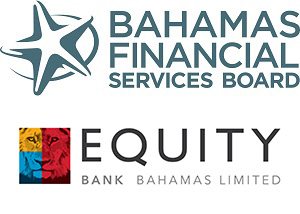Safeguarding the future: trusts as the next evolution in digital asset management

As the digital asset ecosystem matures, more high-net-worth individuals (HNWIs) and institutions are turning to professional fiduciary services to manage and safeguard their digital wealth. One of the emerging strategies in this space is holding digital assets within trusts. The Bahamas, with its robust legislation and regulatory framework for digital assets, is seeing the establishment of many such trusts.
The appeal of digital asset trusts
Digital assets such as cryptocurrencies, non-fungible tokens (NFTs) and tokenised real-world assets represent a significant and growing portion of global wealth. As these assets gain value and acceptance, their holders seek secure, tax-efficient and legally compliant methods to manage them for both current and future generations. A trust is an ideal solution for managing digital wealth due to its inherent flexibility and security.
Clients benefit from several key advantages by placing digital assets within a trust. One significant benefit is asset protection. It is a shield against creditors, litigation and future claims, and a powerhouse resource for the security of digital assets. This is particularly valuable in the digital realm, where assets such as cryptocurrencies can be vulnerable to theft or fraud due to their decentralised and intangible nature.
This is most true for corporate trustees who have seasoned knowledge in engaging experts in the requisite fintech field and the ability to smoothly implement cybercrime insurance, further transferring the risk of loss of digital assets. The corporate trustee is subject to the same anti-money laundering (AML) rules as presented in the Bahamas’ Digital Asset Registered Exchange Act of 2024 (DARE Act).
Trusts also simplify estate planning and wealth transfer. They provide a seamless and efficient mechanism for passing digital assets to heirs or beneficiaries, bypassing the often-complicated process of transferring these assets upon death or incapacitation. This ensures continuity and minimises the risks of lost access or mismanagement.
Another advantage is the professional management and custodianship that trusts offer. Securing digital assets can be complex, but a trust allows for the involvement of experienced trustees with expertise in digital asset custody. These trustees can collaborate with specialised custodians to securely store private keys and implement best practices in cybersecurity, safeguarding the assets for future use.
Further, trusts provide flexibility in the management and distribution of digital assets. Whether a client wishes to delay beneficiaries' access to assets until they reach a certain age or impose specific conditions on how the assets are used, a trust can be tailored to meet these personalised needs. This flexibility allows clients to control how and when their digital wealth is passed on, ensuring that their wishes are met.
Digital asset trusts in the Bahamas
The DARE Act sets out comprehensive legislation specifically tailored to the governance of digital assets.
When establishing a trust for digital assets in the Bahamas, adhering to best practices is crucial to ensure both the security and efficiency of the structure. One of the first considerations is selecting a trustee with expertise in digital assets. Because digital currencies and blockchain technology require specialised knowledge, it is important to choose a trustee who understands the nuances of digital asset custody and the challenges of managing these types of holdings.
It is equally important to work with regulated custodians who can securely store digital assets. These custodians should not only have experience in safeguarding private keys but also follow industry-leading security protocols to ensure the highest level of protection.
Compliance with AML and know your customer (KYC) regulations is another essential step. The Bahamas has strict AML/KYC requirements and ensuring that all parties involved in the trust meet these standards helps to avoid legal complications down the line.
Given the inherent volatility of digital assets, it is important to plan for fluctuations in value. Trustees and beneficiaries need to be mindful of how these changes may affect distributions or impact the overall value of the trust, and adjust accordingly.
Lastly, it is vital to update trust documents to reflect the unique characteristics of digital assets. This includes adding provisions for the transfer of private keys, addressing the potential for blockchain hard forks and outlining how income from activities such as staking should be distributed.
As the global financial landscape continues to evolve, digital assets are rapidly establishing themselves as an essential component of modern wealth portfolios. To navigate the complexities and uncertainties inherent to this emerging asset class, holding digital assets within a trust offers a strategic solution. This approach not only provides robust protection and professional management but also facilitates the seamless transfer of digital wealth across generations.
Written by Dr Kim Thompson TEP, CEO at Equity Trust and Michael Clare, Head of Digital Assets at Liongate Bahamas
The content displayed here is subject to our disclaimer. Read more


Connect with us